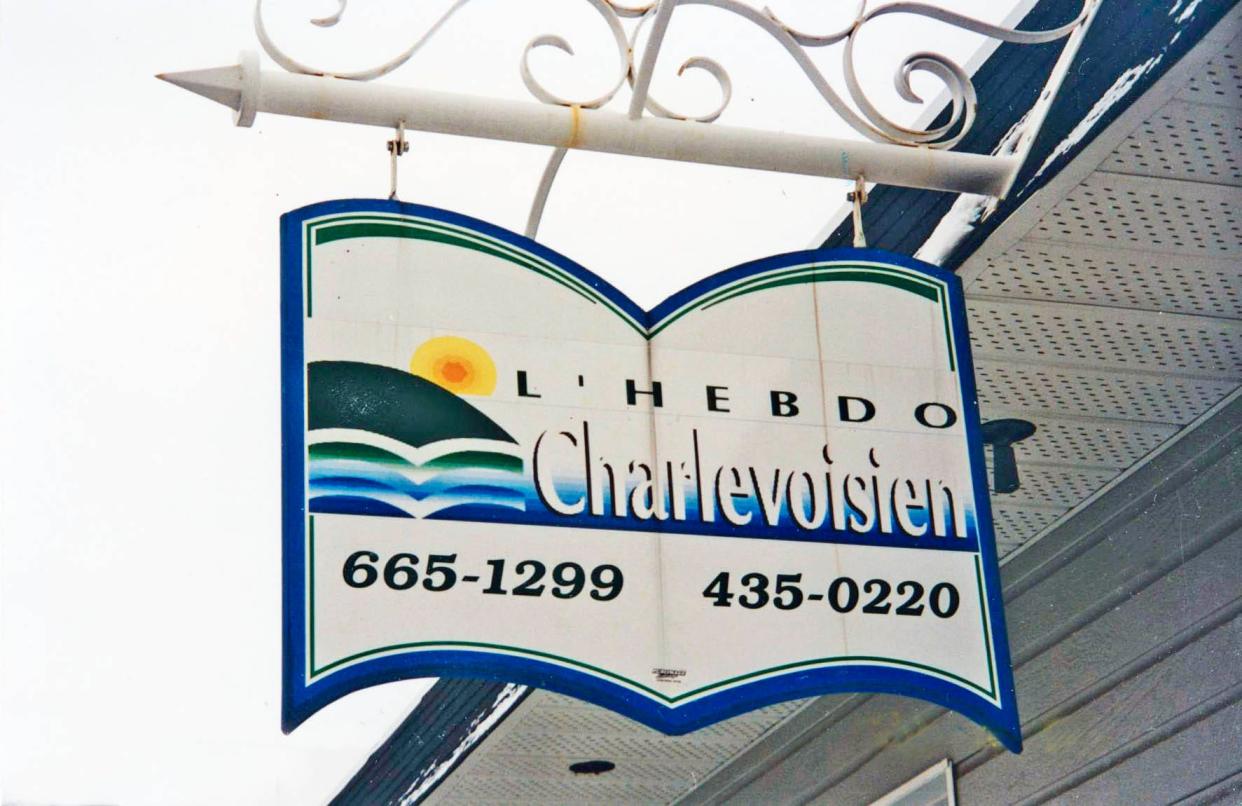Looking back: Murder, mayhem and Charlevoizhens

News was a little sparse during the three times that Looking Back has been concentrating on.
One hundred fifty years ago, Charlevoix Sentinel editor/publisher Willard Smith apologized to his readers that “a ‘streak of bad luck’ has attended us this week, which accounts for the slim appearance of this number of the SENTINEL.” He didn’t specify what had happened, but instead filled his local news columns with excerpts from other papers and publications, many of them extolling the beauties of our town and region.
One interesting item concerned the attempted murder of a wife by her husband in downstate Allegan. "George Truman (was) the cowardly wretch who attempted to assassinate the wife of his bosom, in Allegan, on the 6th, and was on the 11th sentenced to the State Prison for a term of thirty years — in three hours less than five days from the time he committed the foul and dastardly deed.”
Contrast that with our overlitigated today when it takes months to even begin court proceedings for a similar crime. In the same issue, on another topic, Smith reported that Cheboygan at that time was larger than Traverse City.
Last week, Looking Back concentrated on the life and works of Martha Elston Baker, owner and manager for 20 years of the nationally renowned Beach Hotel at the end of West Dixon Avenue, who had recently passed away. Her estate disbursal was reported quickly, in the Jan. 26, 1922 Sentinel. “The husband, John Baker, receives the Troy Laundry, with its full equipment and business, Riverside Cottage (one of the 14 large neighborhood houses surrounding the hotel that were part of its complex), and her daughter, Mrs. Doris Baker von Dolcke the Beach Hotel property, cottages and furniture connected therewith, except as are expressly reserved for John S. Baker.” Doris also inherited both the hotel’s financial obligations and her mother’s substantial fortune.
It’s difficult to interpret Martha’s intent — either she and John had drifted apart as she became so astoundingly successful, or he had expressed no interest in being involved with the hotel. Leaving it to her daughter was the worst decision she could have made. Doris was married to a man with alleged shady connections, a flighty party girl with a drinking problem hitched to a high rolling gambler. Together they slowly but surely ran the mighty Beach into the ground, until it went into receivership a decade and half later, a fire-damaged shell of its former glorious self. John’s lengthy Troy laundry was located on lower Clinton Street right beside Round Lake, and mainly serviced the local hotels during the summer season. It was still there into the 1960s, known then as the Model Home Laundry.
Now and then, visitors to the Historical Society’s Museum at Harsha House ask how we refer to ourselves as residents of this town. I reply that I have heard Charlevoixan, Charlevoixian with a slightly longer ee-an sound at the end, and Charlevoixite. The correct, or rather knock-‘em-dead, way might be at hand.
In the Society’s collection of photographs is one, taken several years ago in a small town on the St. Lawrence River in the francophone county of Quebec. The sign designates the area’s weekly paper, a counterpart of our Charlevoix Courier. The word “Hebdo” is French for “weekly.” This word leaped into worldwide awareness when, on Jan. 7, 2015, two armed Muslim brothers stormed into the offices of the satirical French weekly Charlie Hebdo and killed 12, wounding 11 others. They later claimed to be al-Queda loyalists. The cause of their rage was an alleged cartoon mocking of their prophet Muhammed in the publication.
“Hebdo” is derived from Greek “hepta” meaning seven, which led to Latin “hebdomas” denoting “seven days or week; the number seven; the seventh day.” This led to Late Latin “hebdomadarius,” the holder of a week-long duty in a convent, which in turn evolved into the French “hebdomadaire,” or weekly magazine. So what you are looking at is the name of a newspaper that serves the Quebec county of Charlevoix, the only other place in North America named after the French Jesuit priest/teacher/explorer Pierre Francois Xavier de Charlevoix who came by this way 300 years ago last July 31. “Hebdo Charlevoisien,” the Weekly of Charlevoix. Now, when someone asks how you refer to yourself vis-à-vis Charlevoix, just blithely assume a jaded air of continental nonchalance and reply “Je suis un Charlevoisien (zhe sweez oon Shar-le-vwa-zhen).” I am a Charlevoizhen indeed.
This article originally appeared on The Petoskey News-Review: Looking back: Murder, mayhem and Charlevoizhens

